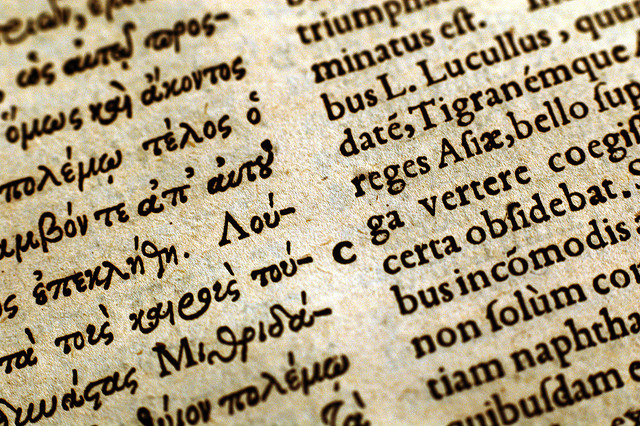There is a widespread issue, or probably a dilemma, of whether classics are useful for people or not. This question is from time to time posed within the university units, and each time a new debate is opened.
The most recent illustration of this is the University of Princeton which decided this year to make the learning of Ancient Greek and Latin optional for students who are likely to study and get a degree in classical education. Another similar fact in the past that caused a lot of skepticism, as well as a wide range of reactions, is the point that Oxford and Cambridge Universities not only downplayed the role of classics in the university curriculum but also removed the obligation from students to learn Ancient Greek and Latin to graduate. We must investigate the reasons why these decisions were made; shouldn’t we?
Some view classic texts as tools of “systematic racism” and an edifice of the supremacy of Western Civilization. Historically, many of the texts written in Ancient Greek or Latin were used to defend ideologies and actions we nowadays condemn, from slavery to suggesting females are inferior to women. Thus, the notion that the Ancient Greeks and Romans were extremely violent and blinkered and studying history through ancient texts might be morally wrong and influence us by leading us to conflicts.
However, some advocate that classics connect today’s Europe with the Enlightenment and the Renaissance and that their cultural, political, and legal contributions are enormous and persistent. For example, the Roman imprint is still apparent in our legal system and ordinances and the foundation of Greek democracy. Moreover, students who study classics are likely to improve their analytical thinking because much of the English language has its roots in Ancient Greek and Latin. Grammar of Ancient Greek is a tool for reading the original and improves critical thinking because we think by using our language.
The study of classics also enhances one’s potential because the most important texts are written in Ancient Greek and Latin and can also help us under challenging circumstances. A perfect illustration of this is that the Medieval times were signaled by theocracy, and the study of classics undoubtedly contributed a lot to the beginning of the Enlightenment and the Renaissance by putting people at the central part of the culture.
I am a Greek student in junior high school and am privileged to be taught school in Ancient Greek. I find that the language speaks to my deepened inner self and makes me think critically. Every time I read an ancient text written in Ancient Greek in school, I am flooded with existential questions and start to wonder about the future of our world. This just goes to show that should one study classics in-depth – which are the basis of almost all civilizations and languages, especially to broaden their horizons.
Furthermore, we cannot assume that Ancient Greek and Latin are dead languages and remove them from university curricula because, if we do, aren’t we viewing university as a labor market lobby? No individual personality and interests would be cultivated, producing only one-dimensional people.
I am inclined to think that classics are a source of invaluable knowledge and help us mentally and psychologically. If we, people of every race, identity, sex, experience, and potential, were to struggle to preserve Ancient Greek and Latin and keep studying them, we would undoubtedly leapfrog towards new ideas contributing to the advancement of the world we live in. Nevertheless, we have to begin this effort, this long journey, – because Plato said: “The beginning is the half part of everything.”
![]()
- Panagiotis Papanikolaou
- Greece
